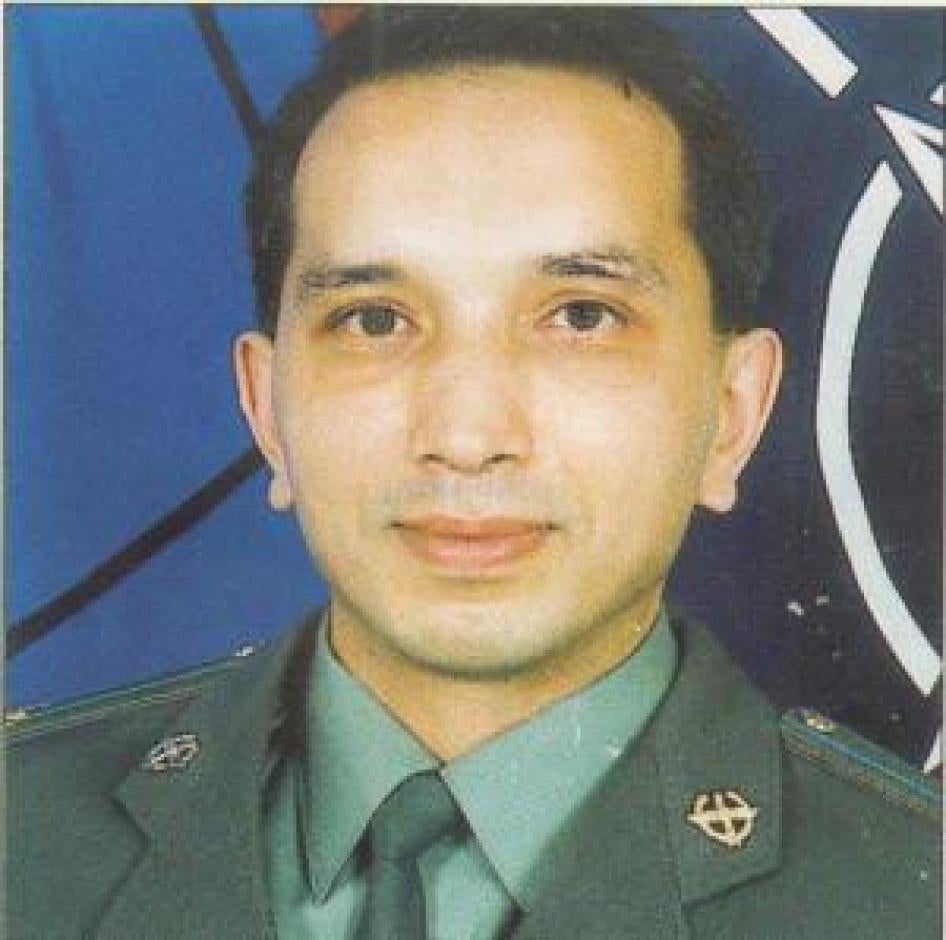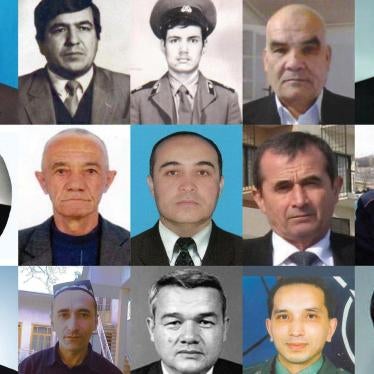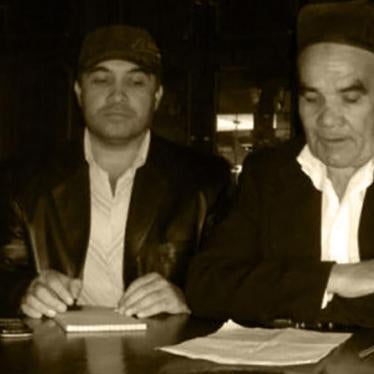(Bishkek) – Erkin Musaev, a United Nations employee and former government official, tortured and unjustly jailed for 11 years in Uzbekistan, was finally freed on August 11, 2017, according to his family, Human Rights Watch said today. Musaev had been imprisoned since 2006 and was granted early release on orders of President Shavkat Mirziyoyev, the family said.
Mirziyoyev should release all those imprisoned on politically motivated charges and ensure effective investigations into the torture of detainees, including Musaev, Human Rights Watch said.
“Erkin Musaev’s release is a joyous occasion for him and his family, but Musaev’s 11-year ordeal won’t end until those who tortured him are brought to justice,” said Steve Swerdlow, Central Asia researcher at Human Rights Watch. “President Mirziyoyev should see to it that all torture of detainees finally ends and all victims get a remedy.”
Musaev is the fifth political prisoner released since Mirziyoyev became acting president in September 2016, following the death of the long-time authoritarian leader Islam Karimov in August. During his campaign, Mirziyoyev promised increased accountability to citizens, and acknowledged the lack of reform in key aspects of Uzbekistan’s society, including the economy and the criminal justice system.
Since assuming office in December, Mirziyoyev has taken modest steps to loosen some restrictions on free expression, and openly criticized prosecutors for abuse of power in certain cases. He also announced plans to abolish exit visas, which improperly restrict the right of citizens to leave the country. But Mirziyoyev has taken few steps to free prisoners held on politically motivated charges.
Mirziyoyev should direct the relevant authorities to effectively investigate allegations that Musaev was tortured, and that his conviction and sentence were based on proceedings that violated basic fair trial standards, Human Rights Watch said. The Uzbek government should also immediately and unconditionally release the other peaceful activists and human rights defenders who remain in prison following politically motivated and unfair trials.
Musaev, now 50, was a UN employee and a former Uzbek government official in the Defense Ministry’s foreign trade department. He was involved in international cooperation programs with Western governments, including the US and the EU, for which authorities later accused him of espionage.
Musaev participated in a US government-sponsored exchange program in the mid-1990s, and in the late-1990s worked as a diplomat for the Uzbek government in Brussels. He later worked in Uzbekistan as a project manager for the UN Development Program’s “Border Management in Central Asia” project.
On January 31, 2006, border guards arrested Musaev at Tashkent airport, after allegedly uncovering a disk among his belongings containing “state secrets.” Musaev wrote to his father that officials had planted the evidence during the search. In its 2007 Human Rights report on Uzbekistan, the US State Department reported that Musaev was tortured in detention, which included severe beatings to his head, chest, and feet, and held for two months without access to a lawyer or any visitors.
A joint letter from the UN special rapporteur on torture and the head of the UN Working Group on Arbitrary Detention to then-President Karimov said that one beating by prison officials broke Musaev’s jaw. Authorities also coerced him to sign a confession that he had engaged in espionage for the US, the UK, and the UN.
Authorities initially charged Musaev with high treason and sharing government secrets. On June 13, 2006, a Tashkent military court sentenced him to 15 years in prison. The day after his conviction, he was also charged with abuse of power and neglect of duty, and another year was added to his sentence. In the ensuing years, Musaev’s relatives reported to journalists and US embassy officials that Uzbek authorities continued to periodically torture him, including one episode in which he was beaten so badly after refusing to provide false testimony that he was hospitalized as a result of significant blood loss. A court later tried and convicted him in another case in which he had been originally called as a witness, adding four years to his sentence.
In May 2008, the UN Working Group on Arbitrary Detention held that Musaev’s imprisonment was “arbitrary”, and in contravention of several international treaties to which Uzbekistan is a party. By February 2011, authorities had transferred Musaev to a high security prison in Navoi province and his body showed signs of burns and other wounds.
In June 2012, the UN Human Rights Committee issued its decision that the Uzbek government had tortured and otherwise ill-treated Musaev and violated his rights to liberty, security, and fair trial under the International Covenant on Civil and Political Rights (articles 7, 9 and 14 respectively). The committee called on Uzbekistan to provide him with an effective remedy for the violations. But Uzbek authorities ignored the ruling, and Musaev remained in prison.
“Musaev suffered harrowing torture at the hands of Uzbek authorities, and his story is just one of thousands of victims of arbitrary imprisonment and ill-treatment,” Swerdlow said. “Uzbekistan’s international partners, including the US and the EU, should use every means of influence at their disposal to reiterate their calls to President Mirziyoyev to release everyone being held unlawfully and arbitrarily under international standards.”









